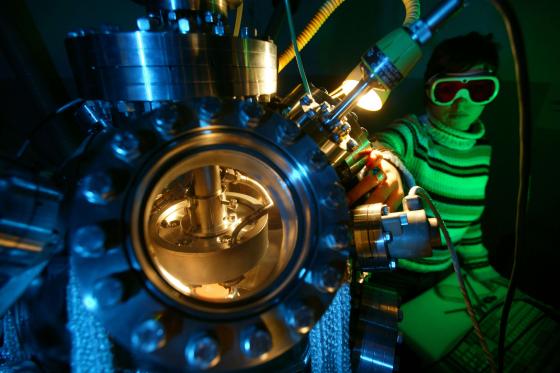Much of the technology commonly used today is based on research in the physics of matter: just think of the development of electronics and telecommunications, applications in biology and medicine, advances in energy or the development of technologies with low environmental impact, advances aimed at improving the quality of our lives.
These results have been achieved thanks to a fundamental understanding of the physical laws that govern the aggregate states of matter by identifying new phenomena and processes, designing and producing artificial materials with innovative properties.
Nowadays, further development passes through the manipulation and control of the electronic, optical and magnetic properties of systems made up of a few hundred atoms, i.e. objects with nanometric dimensions.
The research carried out in our Department is aimed at the study of atomic and molecular aggregates of different sizes: from nanoparticles to sheets of atomic thickness (such as graphene), up to micro and macroscopic systems. By varying the nature, composition and organisation of the atomic constituents of these systems, it is possible to mould their properties.
The complexity and variety of the systems requires a multidisciplinary approach with collaborations also in the international field. Therefore, doctoral students and young researchers from other countries are involved in this research.
The experimental research activity carried out in our Department is divided into several lines that also involve researchers from Research Institutions hosted at DIFI:
- Nanosystem Physics
- Nanomedicine
- Novel functional materials and devices for electronics and energetics
- Superconductivity and magnetism


